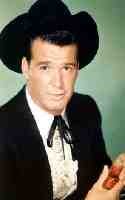One of the justifications our government offered for the war in Iraq was that Saddam Hussein was a terrible dictator who deserved to be overthrown. Many Americans were dubious about that as a reason for the war since there were many other dictators as bad as or worse than Saddam Hussein. Why Iraq? For it to be a reason rather than a justification it had to explain why Iraq and not, say, the Suddan, Zimbabwe or Kazakhstan?
Some politicians are calling for increased security on our border with Mexico. There has even been talk of building a 2000 mile wall on our southern border. The stated reason is a worry about terrorists entering our country. But that strikes me as a justification rather than a reason. As far as I know no terrorists have been captured crossing our border with Mexico but several have been captured in recent years coming in from Canada carrying explosives. Why does our southern border need a wall but not our northern one? If the real reason is a concern about terrorism why not a 3000 mile long wall along our northern boarder? Again one suspects the actual reasons are not advanced because the public may not find them as compelling as the justifications.
The real reasons for our invasion of Iraq, securing our supplies of oil, military bases in the Middle East, and unquestioning total support for Israeli foreign policy, do not sound as nobel or idealistic as the justifications. The real reason for a wall between our country and Mexico, fear that the unless more is done to reduce illegal immigration that Americans who do not speak Spanish will come to feel like foreigners in their own country, is a less enobling argument than the macho "secure our boarders."
The fear that because of immigration the percentage of Americans not speaking English will increase is as pervasive as it is baseless. Many Americans have ancestors who came to America less than 150 years ago not speaking English. Almost all the immigrants who came as adults continued to speak their native language their whole lives. Leaning another language as an adult is very difficult. My father's mother's family came from Germany around 1870 and settled for a while in Davenport, Iowa. At that time (and up until World War I) there was a daily German-language newspaper in Davenport and many stores and whole sections of town where mostly German was spoken. My Grandmother was born in this country and was bilingual, speaking English without an accent but able to converse with her parents and aunts and uncles in German. The schools then, just as they do now, did an excellent job teaching the immigrant children English and how to be Americans, saying the Pledge of Allegiance, honoring American heroes and participating in American holidays.
I keep hearing the claim that the situation today with Hispanic immigrants is somehow different than the 19th Century immigration from Europe. I don't see how. In all the Mexican immigrant families I know or have heard of the children who were under 10 when they came or were born in America speak perfect English without an accent and have been perfectly assimilated, for better or worse, into American popular culture, music, television, movies, etc. Often they are embarrassed by the ways their families are different than the families of their classmates and only speak Spanish if the person they are talking to does not understand English.
This is different than the situation with Middle-Eastern or African immigrants in Europe where even the second and third generations are treated like out-siders and do not feel like they belong. The fact that America has never had riots like those recently in France by second generation immigrant teenagers shows how well the American melting pot works.
The fact that people have come to America to live and do not speak English only means that they have come as adults. They did not come to America with a goal of changing it to be exactly like their native country. They came to participate in what we have. Their children are learning English and will act and speak more like native Americans than their parents. The parent's lack of English is simply a result of a childhood spent somewhere else.
A wall built to protect America from the Spanish language would be a monument to ignorance and unreasoning fear. There may be legitimate reasons to increase security at our boarders or to take action to decrease illegal immigration but protecting the English language is not one of them.


